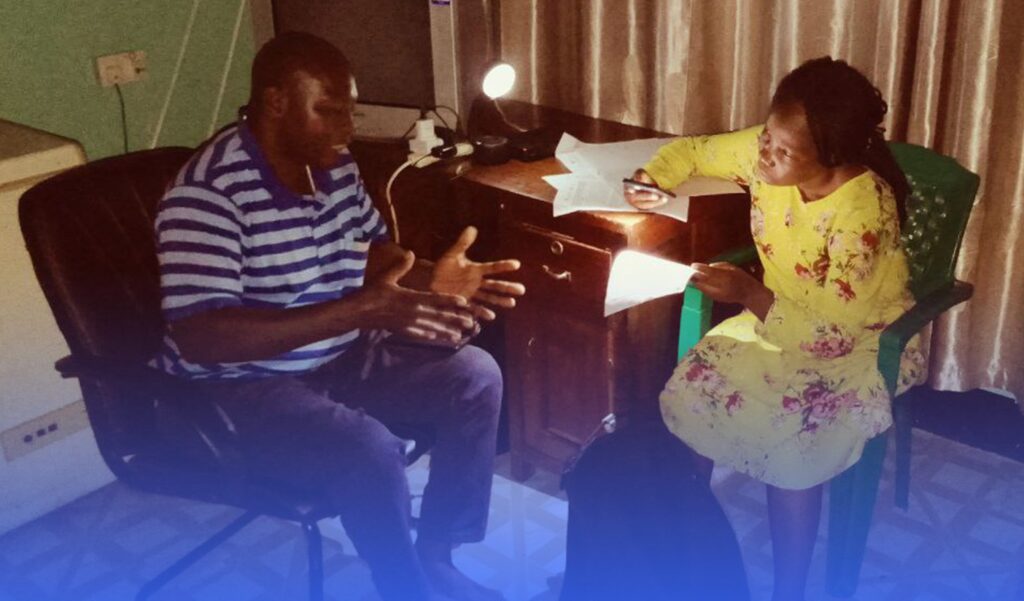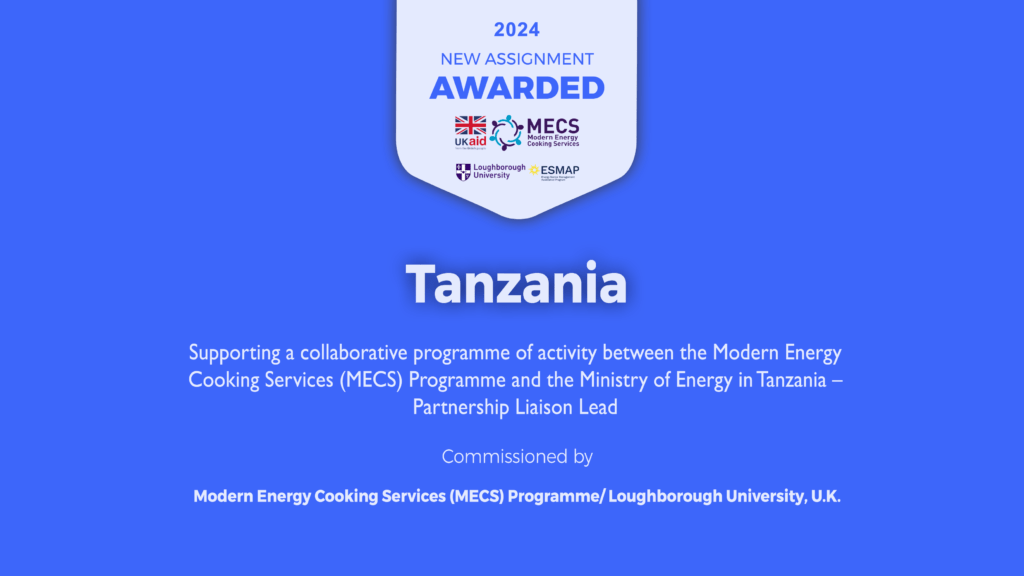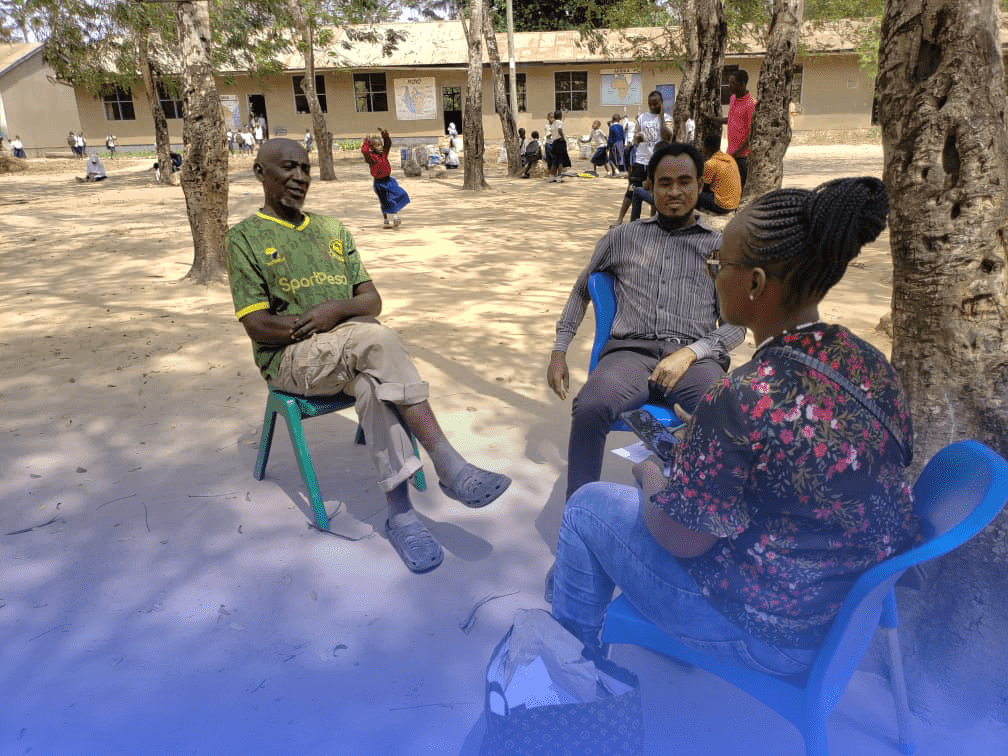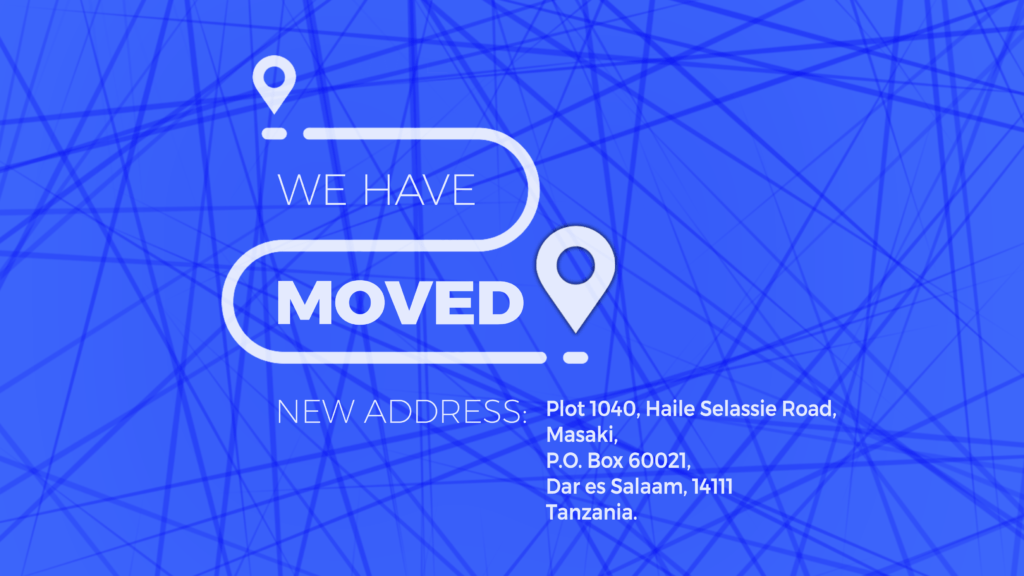Last week, as part of the Mid-term Evaluation of the project “Increasing Access to Equitable Cataract Services in Four Regions of Tanzania,” we embarked on a fieldwork data collection mission. However, our approach went beyond mere data collection; it demonstrated our commitment to accommodating and valuing the contributions of key participants, primarily eye healthcare workers who are, among others, directly impacted by the project interventions.
One of the primary challenges we encountered during the data collection process was aligning the schedules of our team with the availability of these eye healthcare workers. Understandably, these individuals are often engaged in their duties during regular working hours. Hence, we needed to find a delicate balance between our data collection needs and their daily commitments – recognising the importance of not disrupting their services while ensuring their participation.
To achieve this, we made an effort to accommodate their availability by scheduling interviews beyond their regular working hours. This decision required our team to extend their working day, conducting interviews in the evenings to ensure maximum participation without impacting the delivery of essential eye healthcare services.
This experience highlights the importance of flexibility and collaboration in conducting data collection in sensitive environments, such as healthcare settings. Moving forward, we remain committed to ensuring that our data collection approaches are flexible enough to accommodate anyone with whom we should interact, fostering inclusivity.




